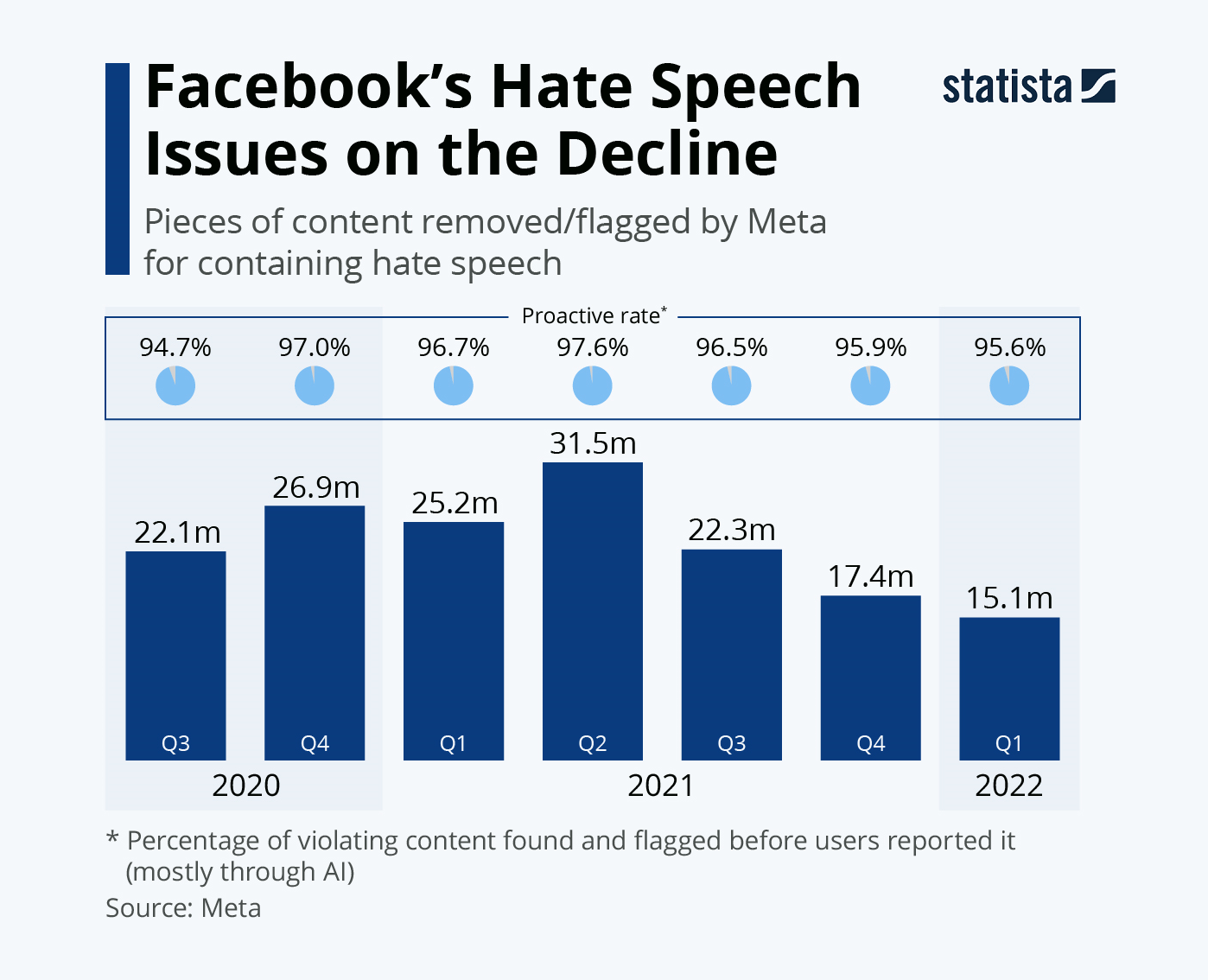Facebook was once considered to be the flag bearer of the entire social media industry, but the platform’s reputation started to diminish once hate speech became a significant enough problem. The presidency of Donald Trump in the US created a very hostile environment on Facebook, one that the social media platform often encouraged because of the fact that this is the sort of thing that could potentially end up driving increased engagement for sponsored posts as well as ads.
With all of that having been said and now out of the way, it is important to note that Facebook has managed to curb its hate speech problem somewhat after a period of heavy post removal. In the first quarter of 2022, Facebook managed to remove over 15 million posts that contained some form of hate speech, which is about 40% fewer posts than it needed to remove in the same quarter in 2021.
In spite of the fact that this is the case, Meta’s algorithm oriented approach doesn’t come without its fair share of drawbacks. Around 4% of Meta’s total content output was reported to contain hate speech during this interim, which is nearly 2 points higher than the proportion that was seen in the previous year with all things having been considered and taken into account.
Facebook along with its parent company Meta has been working overtime to improve its community guidelines and inform them much more frequently. Facebook reported a quarterly dip in revenue for the very first time, and its problematic approach to hate speech might have played a significant role in that.
It will be interesting to see if Facebook’s attempts at cracking down on hate speech bear any real fruit. The reality is that Facebook has a severe uphill battle if it wants to get back the goodwill of its user base. Many users are hesitant to continue using Facebook due to its privacy violating tracking policies as well as its algorithm which often intentionally shows hate speech in order to induce engagement through the incitement of outrage, anger and other negative types of emotions.
H/T: Statista
Read next: Instagram Vows To Listen To Its Frustrated Users And Take A Step Back From Recommended Content And TikTok-Like Viewing Experiences
With all of that having been said and now out of the way, it is important to note that Facebook has managed to curb its hate speech problem somewhat after a period of heavy post removal. In the first quarter of 2022, Facebook managed to remove over 15 million posts that contained some form of hate speech, which is about 40% fewer posts than it needed to remove in the same quarter in 2021.
In spite of the fact that this is the case, Meta’s algorithm oriented approach doesn’t come without its fair share of drawbacks. Around 4% of Meta’s total content output was reported to contain hate speech during this interim, which is nearly 2 points higher than the proportion that was seen in the previous year with all things having been considered and taken into account.
Facebook along with its parent company Meta has been working overtime to improve its community guidelines and inform them much more frequently. Facebook reported a quarterly dip in revenue for the very first time, and its problematic approach to hate speech might have played a significant role in that.
It will be interesting to see if Facebook’s attempts at cracking down on hate speech bear any real fruit. The reality is that Facebook has a severe uphill battle if it wants to get back the goodwill of its user base. Many users are hesitant to continue using Facebook due to its privacy violating tracking policies as well as its algorithm which often intentionally shows hate speech in order to induce engagement through the incitement of outrage, anger and other negative types of emotions.
H/T: Statista
Read next: Instagram Vows To Listen To Its Frustrated Users And Take A Step Back From Recommended Content And TikTok-Like Viewing Experiences

